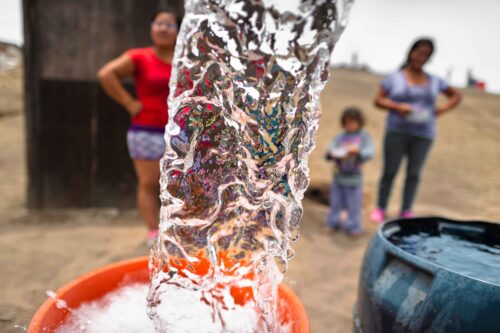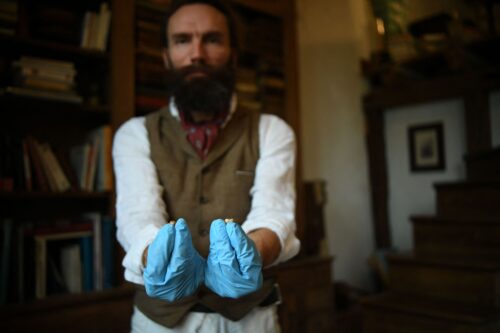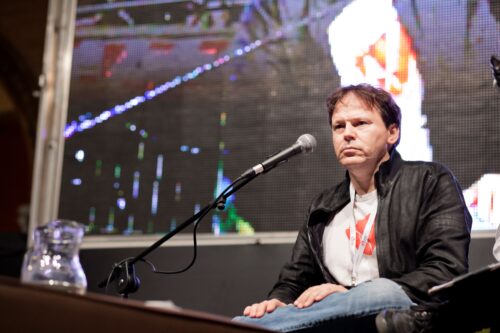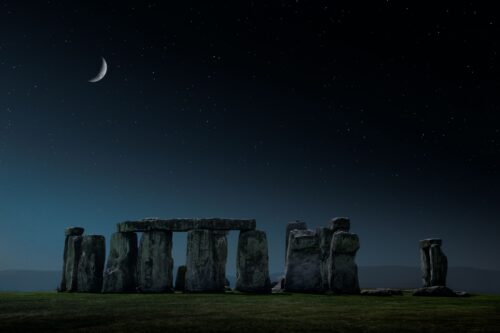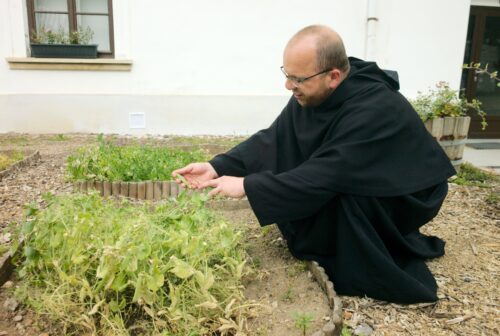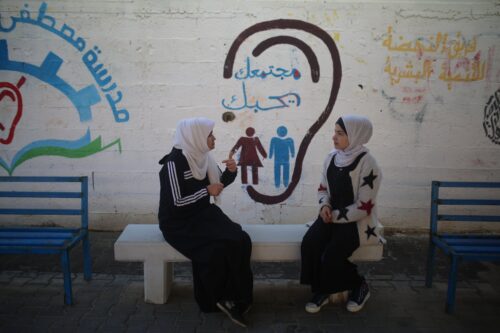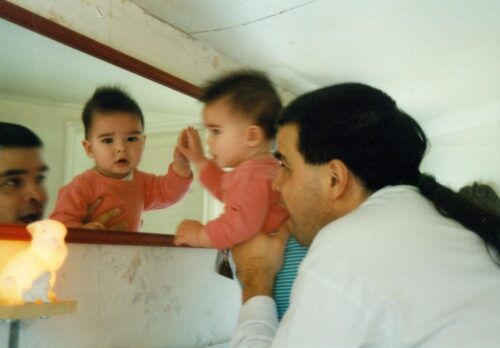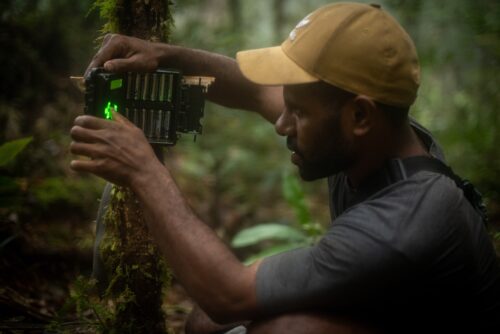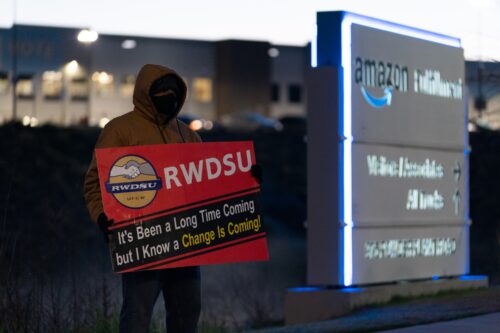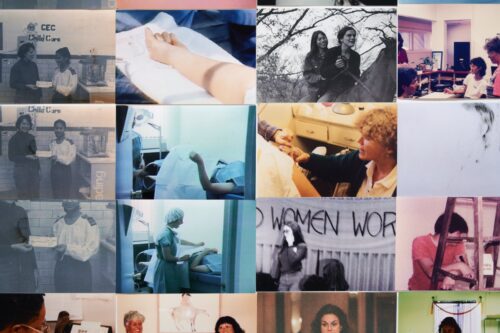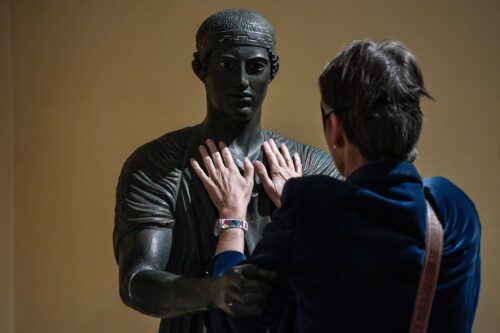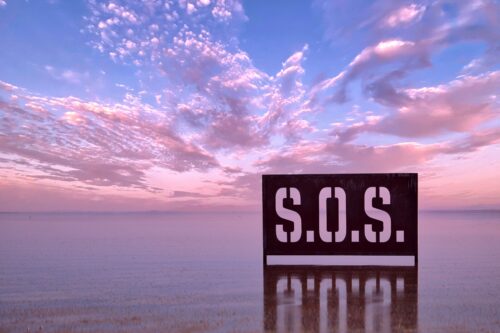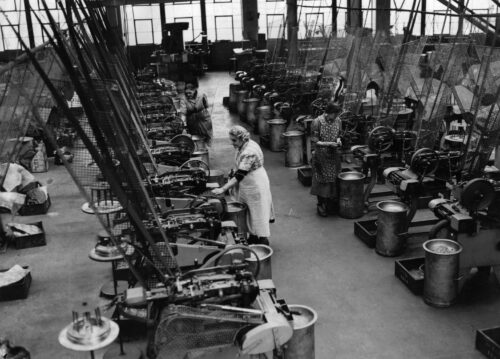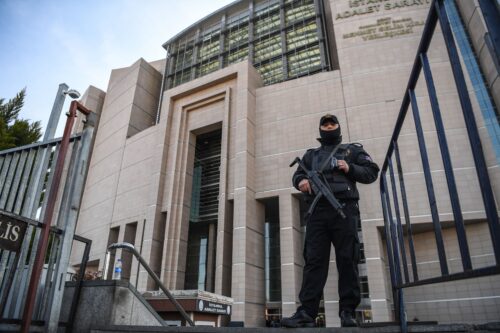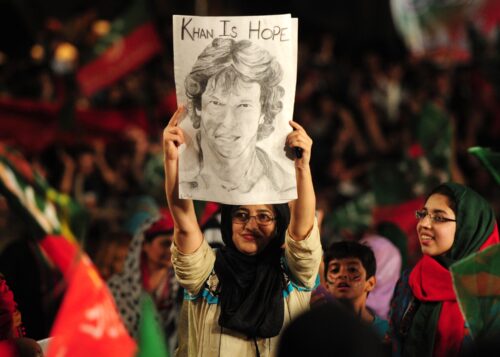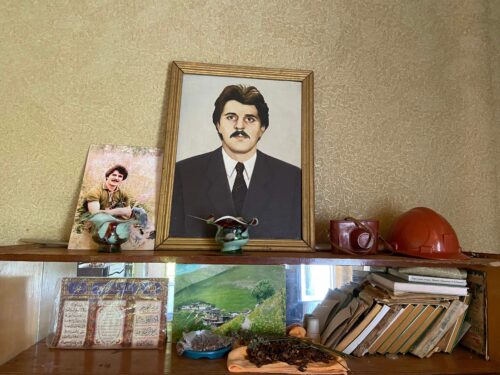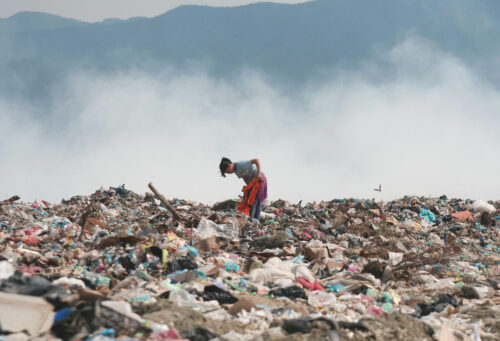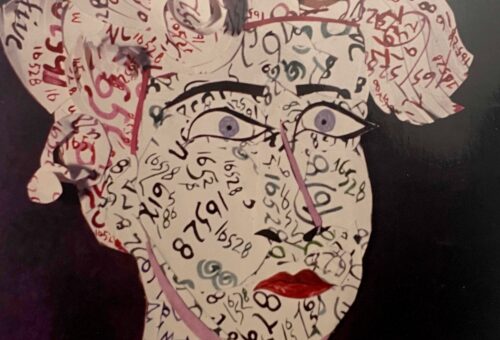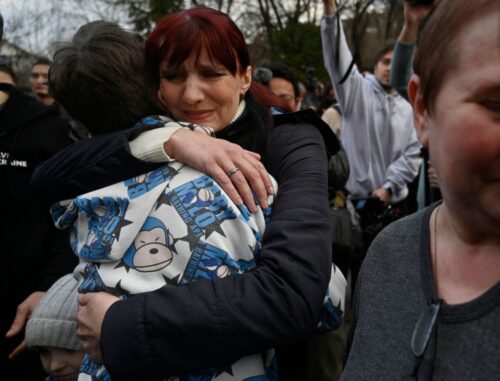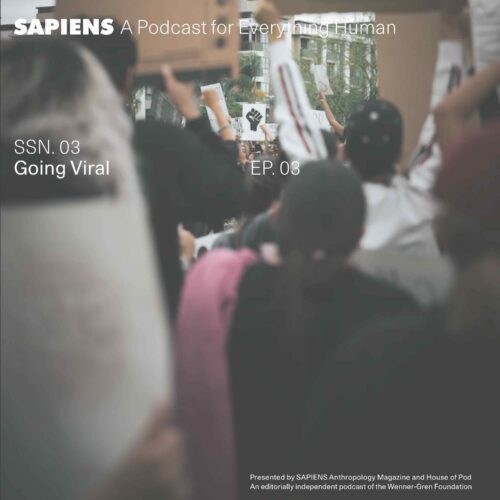SAPIENS host Jen Shannon interviews Laurence Ralph, a professor of anthropology at Princeton University. Ralph is also a co-director of Princeton’s Center on Transnational Policing, the editor of Current Anthropology, and the author of the new book The Torture Letters: Reckoning With Police Violence, which exposes the Chicago Police Department’s history of torturing black men and women, and documents the community activism intent on stopping such violence.
The poll Jen mentions in this episode was conducted by Monmouth and published on June 2, 2020.
Jen Shannon: On May 25, two and a half months after the World Health Organization declared the novel coronavirus outbreak a global pandemic, a police officer killed a man named George Floyd on the street in Minneapolis. The horrific killing sparked a massive wave of protests, as thousands and thousands of Americans, and people all over the world, left their homes to march against yet another instance of police violence and systemic racism.
We already knew that COVID-19 was disproportionately affecting communities of color in this country. But what many people still don’t fully understand is why, and, moreover, what we can do about it.
Laurence Ralph: I know that this is very difficult, and it’s also very inspiring, and these two things can coexist. But let us just remember each other and let us, you know, take what we’re learning from each other in this moment as a way to reimagine how we want our world to look like moving forward.
Jen: Laurence Ralph is a professor of anthropology at Princeton University. He’s also a co-director of Princeton’s Center on Transnational Policing and the editor of Current Anthropology. But perhaps the most important for our conversation today, Laurence has a new book out. It’s called The Torture Letters: Reckoning With Police Violence, and it documents the Chicago police department’s history with torture through a combination of historical research and community interviews. Between 1972 and 1991, Chicago police officers tortured at least 125 Black people—residents of the city they swore to protect and serve. Laurence, welcome to SAPIENS.
Laurence: Thank you, it’s a pleasure to be here.
Jen: So, Laurence, when I read your book, it really made me think about this idea of visibility. The pandemic seemed like the only thing in the news and all anybody wanted to talk about for almost three months—until now.
Your book offers so many insights into racial inequality and how the system part of systemic racism works, how it has a way of keeping things—terrible things—invisible.
So, before we get to the protests and the pandemic, I’d love to hear more about your research. Can you briefly explain what the Chicago police department’s torture program was? How did it work? What were the results?
Laurence: Between the early 1970s and the early 1990s, we know for sure that at least 125 Black men were tortured in police custody. Most of this was done at the hands of one police commander named John Burge and within his precinct. Now, since that time, there’s been decades and decades of activism, but also legal recourse through which the torture survivors have been trying to first just get recognition and say, this happened to me. And then once it was undeniable that some people had been tortured, we kind of followed the links through the legal documents and through the cases and through the other people who were complaining about similar things until we got at this number 125. Now, that’s important for a couple reasons. One is that when we talk about the police torture scandal in Chicago, we’re talking about this particular incident. But even beyond Burge, we see that similar things were happening in Chicago and similar things have been happening in different cities throughout the country. And so, what’s important to understand from my perspective is not only the question of how did this happen, how did torture happen in one of America’s most celebrated cities? But the key question is what is to prevent it from happening again?
Jen: One of the things that I just want to be clear about is that when you use the term torture in the torture scandal, that it’s not an exaggeration, it’s not another name for police brutality, that it was actually the legal definition of torture. And you describe that in your book, but that, you know, it was people being electrocuted, it was people being burned against radiators, and that it was systematic.
Laurence: Yes. I mean, I think that the legal definitions become important, really, from a legal standpoint, because this is how we know that it occurred and that it occurred in a particular way and it occurred to a particular population of Black men. They were linked, sad to say, by their scars that they endured from this torture. And so, the marks of torture ended up being inscribed in their bodies by the particular instruments that police officers were using on them, by the techniques of brutality, and these marks created a pattern so that one torture survivor could say, That same thing happened to me—and then a community of torture survivors become visible to each other over time. And that’s important from a legal standpoint. But I think on a broader level, it’s something that’s happening throughout our country now where we see that, oh, these forms of harassment, they’re happening to me, too, in different places throughout the nation. These killings are happening to us, too, in different parts across the nation. And what we’re witnessing now is a process by which people are saying, no, the same kinds of police violence are becoming visible to me, the same forms of brutality and the same response, the protests we see, is happening throughout the country.
Jen: So, talking about all of those different people that shared that experience, you actually chose one person’s story to go into a lot of detail so that we could understand it from a more personalized perspective. And that was a Mr. Andrew Wilson. And I’m wondering why choose his story? And what were you hoping readers would understand from his example?
Laurence: Yeah, I mean, I really grappled with how to delve into the topic of torture because it’s such a heart-wrenching, graphic topic to describe and the urgency of it. It’s so difficult for people to understand because on the one hand, you know, it seems like common sense: of course, people shouldn’t be tortured within police custody. But in reality, there’s all sorts of exceptions that people make. And I was thinking about why that is so. And I think part of it is because when we’re telling stories about the criminal justice system, oftentimes we look for the perfect victim. We look for the innocent person who didn’t do it. And it’s clear that they didn’t do it. So, we can say, Wow, isn’t it a tragedy that this thing happened to this person and they didn’t even do anything wrong? And we tell those stories in our movies and in our documentaries, and so I wanted to really test the readers’ moral consciousness, like, even if someone has committed a crime or even if it looks like there’s all the evidence in the world that they have committed this crime, should they be allowed to be tortured?
And so, I picked Andrew Wilson’s case because he had a criminal record. He was accused of killing police officers. He was not a sympathetic figure at all. And when Andrew Wilson raised his case that he had been tortured in civil court, a jury found that the police shouldn’t be held responsible or accountable for his torture precisely because of the acts that he committed or they felt that he had committed and that he was convicted of committing. And so, what happens when we do that? What happens when we make an excuse and kind of go back on our own moral standards for what we allow in the law?
What I hope to demonstrate in the book is that the whole criminal justice system collapses because now we have people who may have been guilty who were tortured, people who were definitely innocent that were tortured, and we have a whole criminal justice system working to cover up the acts of the officers who were involved. And so, what I’m challenging us to do as a public is to really hold firm to our standards and commit to the idea that no one ever deserves to be tortured no matter what they have done.
Jen: Yeah, I recall that the jury kind of said, Oh, they were emotional because of the specific case. But that’s hard to take when there’s been 125, right?
Laurence: Exactly.
Jen: And I have to say, you know, I grew up in Chicago. I didn’t hear about it. My parents hadn’t heard about it. So, that really was surprising. And you talk about who that’s surprising to, right? That for the community members, it’s not surprising. They’ve known it’s been going on forever. There’s been commissions and recommendations about racist policing since 1919, probably earlier, right? So, these things keep coming, again and again. So, how does something like this stay invisible to so many other people for so long?
Laurence: Part of it is because knowledge is systematically obscured when it comes to torture. For example, when you have a civil case and someone is awarded judgment, oftentimes there becomes or tied in with the settlement is a gag order or the notion that the person can’t speak about this case anymore publicly or something like that. And when I was reviewing the court filings for a lot of these cases, the names of particular police officers were redacted in the public record. And so, we can’t necessarily know who they are. And so, if we’re just going by what’s available, what’s available has within it embedded silences that if you don’t believe what people are saying and you don’t believe people that they have been tortured, then you’re going to hit roadblocks as a scholar and the same is true for a reporter. Another, you know, related issue is just the faith that our country has in policing and an inability to imagine alternatives. And so, we can admit that, OK, this was something that could never happen. But then again, at the same time say, but what are we going to do when we’re faced with violent crime in our community? And we don’t have the answers for that. And so, it becomes a way of sweeping it under the rug again. And so, what I’m hoping people will see is that these incidents are cyclical and they happen again and again. And they’re moments in our history when people are paying attention. And we need to seize on those moments in order to explore what’s possible.
Jen: Well, that kind of leads to this poll that I recently read that said 57 percent of Americans now believe police are more likely to use excessive force on African Americans, when six years ago only 33 percent believed that. And an experienced pollster said in 35 years he had never seen opinions shift so fast or so deeply. So, I’m wondering, what do you think has changed?
Laurence: Part of it is just the visibility in the kind of undeniability of social media. And I say social media, in particular, because there is a way that even what’s covered in the news or what’s seen as important in the news can obscure the reality of police violence. But when people are posting themselves in, and movements are created organically around these issues, such as Black Lives Matter and the Movement for Black Lives, we see that even if it is not on your TV screen, you’re aware of it to a certain level. And I think that’s a big part of the story. And it’s always been a part of the story in terms of the visibility and what it does to allow, on the one hand, the African American community to retell the experience, a shared experience, a collective experience of police violence, and on the other hand, for the rest of the American public, for them to perceive that, perhaps for the first time.
Jen: Absolutely. We all become witnesses, right?
Laurence: Right.
Jen: The recent protests began with a demand for recognition of the deaths of George Floyd, Breonna Taylor, Ahmaud Arbery, and so many others. But the message is now shifting to also include demands for reform and specific actions for change, and defunding the police is front and center right now—it’s even emblazoned on 16th Street in Washington, D.C. And you actually discussed defunding the police as something the organizers you talked to were also interested in. What would that mean, and why did the Chicago residents that you spoke with believe this was key to making change and also for them to feel safe in their own city?
Laurence: What I would say is that oftentimes we think about it in a negative way, as if we’re taking something away from the police. But we can also think of it in terms of a positive or additive way, as if we’re reorganizing our priorities as a society. If we didn’t spend this disproportionate amount on policing, we would have more money for health care, we would have more money for education, we would have more money for public services. And those issues would quell crime more than investing in policing does. That’s what people are calling for. And it’s also a recognition that what police are called to do in many contexts is not what they’re trained to do. And therefore, that is the cause of violence.
When police are called to address a mental health issue, and they’re not trained to recognize a mental health issue, but they’re trained to see any erratic behavior as a violent threat, they react with force. But we need people in the communities who are equipped to deal with mental health issues and to de-escalate and to incorporate people back into society. And so, it’s a recognition that the police aren’t trained to do those things and that other public services would be better equipped to address those concerns. So, why don’t we invest in those institutions?
Jen: One of the things that we’re thinking about in this season of SAPIENS is: What does it mean to be human in the midst of a global pandemic? And so, like you were mentioning before, we’ve seen mass protests against police violence, but these weren’t happening at the same time as a pandemic as it is now. And they didn’t happen at the scale. We’re seeing people not just all over America for two weeks, but also all over the globe. So, I’m wondering how you think COVID-19 has influenced or affected how the public receives this message this time around that Black Lives Matter?
Laurence: So, we’ve known, you know, all our lives, our parents grew up telling us that if a police officer looks at you the wrong way, you could die. You can be severely injured, and it won’t be your fault, but it can happen nevertheless. And the important part about recognizing that is to recognize that when someone passes from COVID or when someone is ill from COVID for weeks on end and the family is dealing with that, it’s not that person’s fault that they were hospitalized or that they were on a ventilator. They were just going about their daily business as they always go about it, and they were struck with this deadly virus.
And I think that that recognition on a national scale that you can be severely ill and you can die and it cannot be your fault and that the government can abandon you, right? I think that is an important insight into, you know, how African Americans have dealt with police violence. And so, that empathetic understanding that we are at the mercy of these large-scale structural forces, I think, has provided, you know, the impetus for the most diverse collective protests that we’ve ever seen.
The other thing that COVID did, I think, is to let us know how much we’re all intimately connected. You can catch COVID by breathing on someone the wrong way and passing them on an elevator or on the train or riding your bike behind someone too closely. And this is the same thing about police violence. We’re all connected. You know, when the most vulnerable of us is subjected to brutal police force, it can easily occur to any of us. And so, we have to address the root causes of police violence and not blame people for basically dying and not, you know, scapegoat them and criminalize them because they suffered at the hands of the police.
Jen: There’s one line in particular in your book that I think resonates with new meaning now. You wrote, “The institutionalization of torture in our legal system will persist until citizens rise up and demand that it cease.” Well, Laurence, what do you think about that now?
Laurence: I mean, what we’re seeing right now is something that was hard for me to imagine when I was looking at the history of police torture in Chicago. And I think that this is what it looks like, you know, demanding that, you know, in Minneapolis, the city council voting to defund the police. This is what it looks like when we’re demanding that it stop, and we’re not making excuses or giving police officers the benefit of the doubt that something must have been wrong with someone or that they, you know, deserved what happened to them. We’re saying that no, this should never happen. And we’re going to put safeguards in place collectively to ensure that this will never happen again. And I think that’s a major step. And, you know, I’m proud to be a part of this moment where people are really taking this seriously.
Jen: What struck me about your book was not only was it based on many conversations with community members, but you wrote it as a series of letters to them, police superintendents, future mayors. I am wondering, if you were to write a letter now, who would it be to, and what would it say?
Laurence: Yeah, that’s a great question. I think if I were to write a letter now, it would definitely be to the protesters who are out there risking their lives. And I would like to, you know, just pause and reflect on the connections that are being made in this moment. I mean, I think that on the one hand, it’s again, a human empathetic connection to each other because this is such a diverse movement at the moment. But it’s also a kind of reaffirmation of human dignity.
You know, in the slogan Black Lives Matter. That’s a slogan about love. That’s a slogan about dignity. And it’s, when people say that out loud, no matter the color of their skin, what they’re saying is that to be human is to demand dignity. And so, I would just encourage that as the impetus moving forward to what we need to reimagine our society. And I would hope to inspire through those words because it’s so hard to get down now. You know, coming off the heels of the pandemic with so much loss and still in the midst of it, really. And in the midst of the unknown, we don’t know what’s going to happen with COVID. We don’t know what’s going to happen with the elections coming up. We don’t know what our cities are going to look like, what kind of businesses are going to open, whether we’ll be able to return to our jobs and to our schools. And so, I think we need inspiration. What’s happening now, to me, is so inspiring because it is primarily about a collective assertion of dignity on behalf of the most vulnerable. And when we start from that premise, I think that we have a good opportunity to provide equity in our systems of justice.
Jen: This episode of SAPIENS was produced by Paul Karolyi, mixed, audio edited, and sound designed by Jason Paton, and it was hosted by me, Jen Shannon.
Jen: SAPIENS is produced by House of Pod, with contributions from executive producer Cat Jaffee. SAPIENS is an editorially independent magazine funded by the Wenner-Gren Foundation and published in partnership with the University of Chicago Press. Thanks to Danilyn Rutherford, Maugha Kenny, and all the staff at the Wenner-Gren Foundation and SAPIENS.org.
Jen: SAPIENS is part of the American Anthropological Association Podcast Library. Until next time, we wish you well, fellow sapiens.
